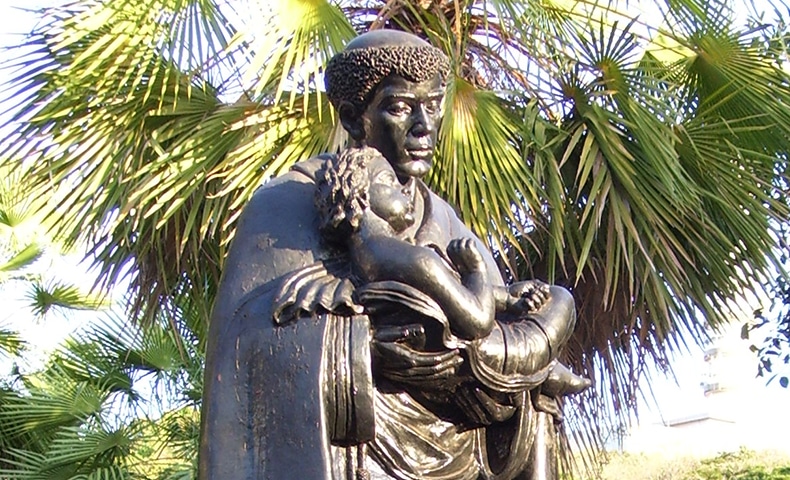Image: Statue of Saint Benedict the Moor | Church of Our Lady of the Rosary and Saint Benedict, Cuiabá, Mato Grosso, Brazil | photo by Mateus Hidalgo
Saint of the Day for April 3
(1526 – 1589)
Saint Benedict the African’s Story
Benedict held important posts in the Franciscan Order and gracefully adjusted to other work when his terms of office were up.
His parents were slaves brought from Africa to Messina, Sicily. Freed at 18, Benedict did farm work for a wage and soon saved enough to buy a pair of oxen. He was very proud of those animals. In time, he joined a group of hermits around Palermo and was eventually recognized as their leader. Because these hermits followed the Rule of Saint Francis, Pope Pius IV ordered them to join the First Order.
Benedict was eventually novice master and then guardian of the friars in Palermo—positions rarely held in those days by a brother. In fact, Benedict was forced to accept his election as guardian. And when his term ended, he happily returned to his work in the friary kitchen.
Benedict corrected the friars with humility and charity. Once he corrected a novice and assigned him a penance only to learn that the novice was not the guilty party. Benedict immediately knelt down before the novice and asked his pardon.
In later life, Benedict was not possessive of the few things he used. He never referred to them as “mine,” but always called them “ours.” His gifts for prayer and the guidance of souls earned him throughout Sicily a reputation for holiness. Following the example of Saint Francis, Benedict kept seven 40-day fasts throughout the year; he also slept only a few hours each night.
After Benedict’s death, King Philip III of Spain paid for a special tomb for this holy friar. Canonized in 1807, he is honored as a patron saint by African Americans. The liturgical feast of Saint Benedict the African is celebrated on April 4.
Reflection
Among Franciscans, a position of leadership is limited in time. When the time expires, former leaders sometimes have trouble adjusting to their new position. The Church needs men and women ready to put their best energies into leadership—but also men and women who are gracefully willing to go on to other work when their time of leadership is over.
Saint Benedict the African is a Patron Saint of:
African Americans








